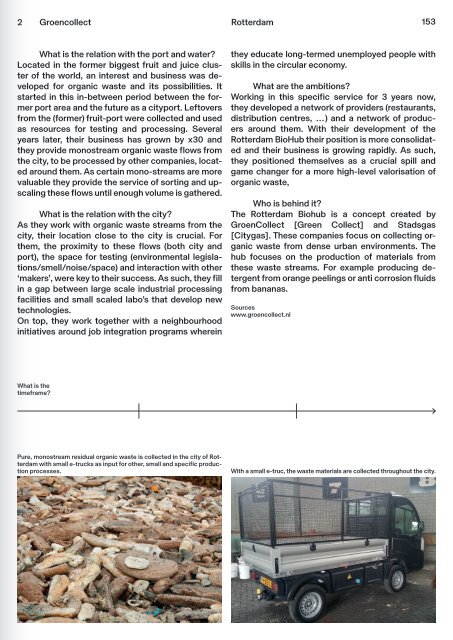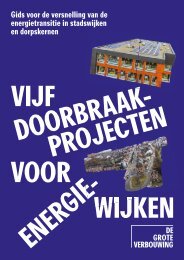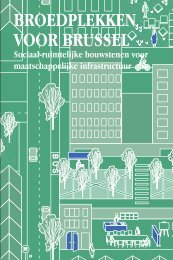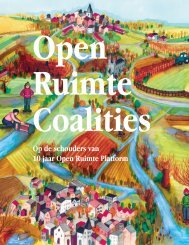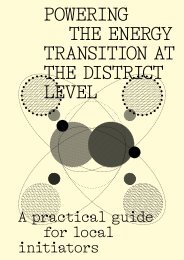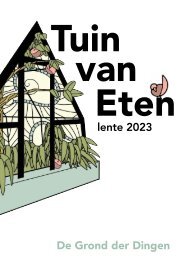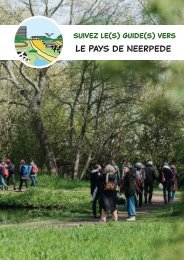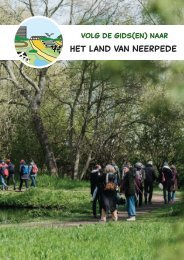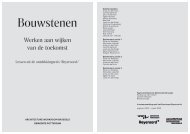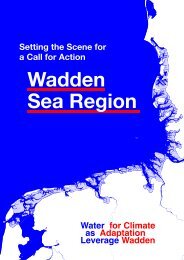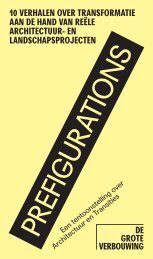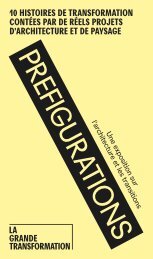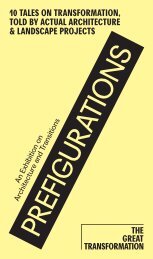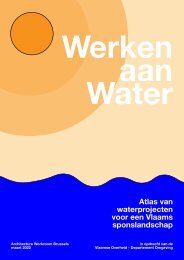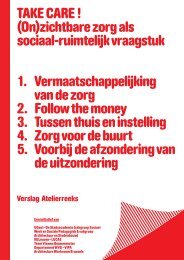Circular City Ports - Workbook
You also want an ePaper? Increase the reach of your titles
YUMPU automatically turns print PDFs into web optimized ePapers that Google loves.
2 Groencollect Rotterdam<br />
153<br />
What is the relation with the port and water?<br />
Located in the former biggest fruit and juice cluster<br />
of the world, an interest and business was developed<br />
for organic waste and its possibilities. It<br />
started in this in-between period between the former<br />
port area and the future as a cityport. Leftovers<br />
from the (former) fruit-port were collected and used<br />
as resources for testing and processing. Several<br />
years later, their business has grown by x30 and<br />
they provide monostream organic waste flows from<br />
the city, to be processed by other companies, located<br />
around them. As certain mono-streams are more<br />
valuable they provide the service of sorting and upscaling<br />
these flows until enough volume is gathered.<br />
What is the relation with the city?<br />
As they work with organic waste streams from the<br />
city, their location close to the city is crucial. For<br />
them, the proximity to these flows (both city and<br />
port), the space for testing (environmental legislations/smell/noise/space)<br />
and interaction with other<br />
‘makers’, were key to their success. As such, they fill<br />
in a gap between large scale industrial processing<br />
facilities and small scaled labo’s that develop new<br />
technologies.<br />
On top, they work together with a neighbourhood<br />
initiatives around job integration programs wherein<br />
they educate long-termed unemployed people with<br />
skills in the circular economy.<br />
What are the ambitions?<br />
Working in this specific service for 3 years now,<br />
they developed a network of providers (restaurants,<br />
distribution centres, …) and a network of producers<br />
around them. With their development of the<br />
Rotterdam BioHub their position is more consolidated<br />
and their business is growing rapidly. As such,<br />
they positioned themselves as a crucial spill and<br />
game changer for a more high-level valorisation of<br />
organic waste,<br />
Who is behind it?<br />
The Rotterdam Biohub is a concept created by<br />
GroenCollect [Green Collect] and Stadsgas<br />
[<strong>City</strong>gas]. These companies focus on collecting organic<br />
waste from dense urban environments. The<br />
hub focuses on the production of materials from<br />
these waste streams. For example producing detergent<br />
from orange peelings or anti corrosion fluids<br />
from bananas.<br />
Sources<br />
www.groencollect.nl<br />
What is the<br />
timeframe?<br />
Pure, monostream residual organic waste is collected in the city of Rotterdam<br />
with small e-trucks as input for other, small and specific production<br />
processes.<br />
With a small e-truc, the waste materials are collected throughout the city.


